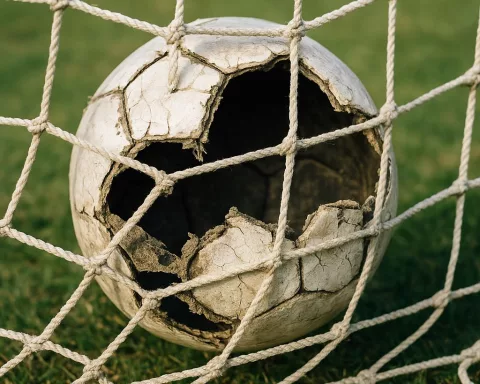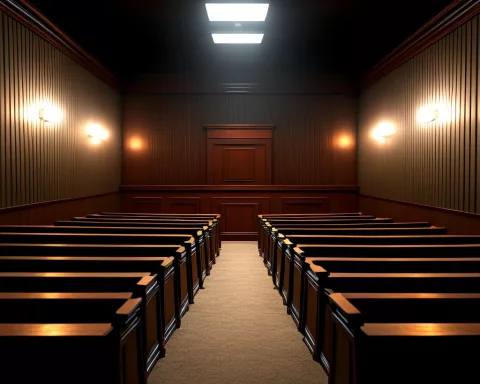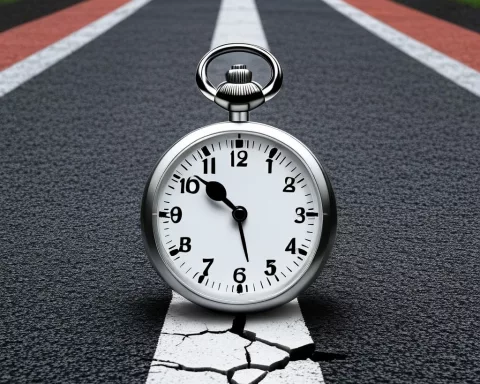South African athletes’ legal challenges have had a ripple effect on society, showcasing moral dilemmas and the complicated aftermath of fame. Examples include Thembinkosi Lorch’s assault conviction, which sparked a debate about society’s tendency to defend celebrities, and Senzo Meyiwa’s unsolved murder case. Some athletes, such as Caster Semenya, have fought for their rights to compete, while others, like Oscar Pistorius, have faced tragic consequences and legal intricacies. These cases reflect the challenges of balancing morality, celebrity culture, and justice in South African sports and society.
The Ripple Effect of South African Athletes’ Legal Challenges: A Look at Fame, Tragedy, and Legal Complications.
The Paradox of Fame and Reputation
South Africa’s legal chronicles are punctuated by numerous instances featuring noteworthy athletes. These instances not only cast a spotlight on the actions and behaviors of the athletes but also offer potent insight into societal standards, ethical dilemmas, and the aftermath of stardom.
Amongst these numerous legal tangles, Thembinkosi Lorch’s case stands out prominently. The Orlando Pirates’ star was recently on trial, casting a bleak cloud over his stellar career. In 2020, Lorch was legally held responsible for assaulting his former girlfriend. His punishment included a five-year suspended sentence in November 2023 and a ban from participating in his club’s matches until the end of December. The shielding sentiment expressed by his fans after his conviction sparked a deeper debate about society’s inclination to defend celebrities, regardless of their wrongdoings.
Tragedy, Controversy, and Resistance
Senzo Meyiwa’s case adds a different flavor to this legal narrative. Unlike Lorch, Meyiwa is not alive to face his accusers. The search for his murderers is still engaged in a cat-and-mouse chase within the complex legal matrix, and there seems to be no end in sight.
Hanse Cronje’s case is another vivid example of how an athlete’s stellar reputation can be overshadowed by controversy. Cronje, a renowned cricketer, faced allegations of match-fixing. The accusations created ripples that lingered even after his death. The controversy threatened to resurface as recently as 2020 before it was finally put to rest.
However, not all court cases involving athletes stem from wrongdoing. Caster Semenya’s legal saga is a perfect illustration. Semenya went to great lengths to assert her right to compete as a woman on the global athletic stage. Her journey took her from the Court of Arbitration for Sports to the European Court of Human Rights, culminating in a ruling in her favor.
Legal Complications and Stark Realities
The Oscar Pistorius case has perhaps been the most captivating of all. The combination of tragedy and legal intricacies made it a highly publicized affair. Pistorius was eventually convicted of culpable homicide for the shooting death of his girlfriend, Reeva Steenkamp, in 2013. He is currently eligible for parole, a discussion point that continues to stoke fiery debates.
These high-profile legal conflicts involving South African sports stars are not just about the individuals themselves. They act as a societal mirror, displaying the daunting challenges we face in balancing morality, the celebrity culture, and the pursuit of justice. Each case, with its unique set of circumstances, adds a distinctive shade to the colorful mosaic of South African sports and legal heritage.
1. What is the Ripple Effect of South African Athletes’ Legal Challenges?
South African athletes’ legal challenges have had a ripple effect on society, showcasing moral dilemmas and the complicated aftermath of fame.
2. What is Thembinkosi Lorch’s case, and what did it spark?
Thembinkosi Lorch’s assault conviction sparked a debate about society’s tendency to defend celebrities, regardless of their wrongdoings.
3. What is the Senzo Meyiwa’s case, and what is its current status?
Senzo Meyiwa’s unsolved murder case is still engaged in a cat-and-mouse chase within the complex legal matrix, and there seems to be no end in sight.
4. What is Caster Semenya’s legal saga, and what was the outcome?
Caster Semenya went to great lengths to assert her right to compete as a woman on the global athletic stage, and her journey took her from the Court of Arbitration for Sports to the European Court of Human Rights, culminating in a ruling in her favor.
5. What is the Oscar Pistorius case, and what is its current status?
Oscar Pistorius was eventually convicted of culpable homicide for the shooting death of his girlfriend, Reeva Steenkamp, in 2013. He is currently eligible for parole, a discussion point that continues to stoke fiery debates.
6. What do these high-profile legal conflicts involving South African sports stars reflect?
These high-profile legal conflicts involving South African sports stars are not just about the individuals themselves. They act as a societal mirror, displaying the daunting challenges we face in balancing morality, the celebrity culture, and the pursuit of justice.












